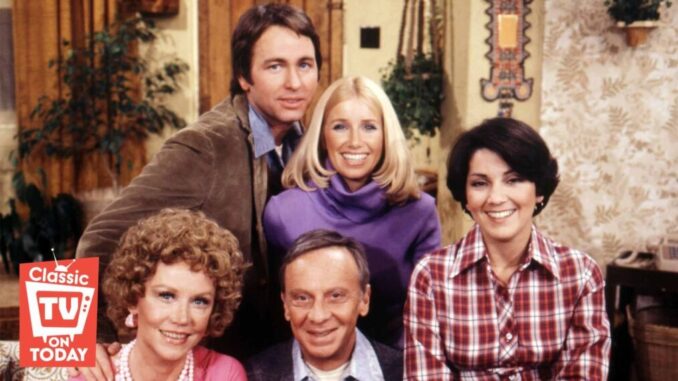
“Three’s Company” was a groundbreaking sitcom that shaped the way we view sitcoms today. However, when compared to contemporary sitcoms, we can observe significant differences that reflect changes in society, culture, and audience preferences.
1. Themes and Content:
- “Three’s Company”: Focused on comedic situations revolving around the shared living arrangements of a man and two young women, with humor derived from misunderstandings and physical comedy.
- Modern Sitcoms: Offer a broader range of themes, from family dynamics and friendships to contemporary social issues such as discrimination, LGBTQ+ rights, and mental health. The humor is often more sophisticated, employing satire and irony.
2. Humor:
- “Three’s Company”: Relied heavily on situational comedy, misunderstandings, and physical humor.
- Modern Sitcoms: Employ a diverse range of comedic styles, combining situational comedy, verbal wit, satire, and even dark humor. Humor is often more nuanced and explores deeper levels of character psychology.
3. Characters:
- “Three’s Company”: Characters were more archetypal, with clear-cut roles: the dim-witted man, the beautiful and intelligent woman, and the naive young woman.
- Modern Sitcoms: Characters are more complex and multifaceted, often grappling with personal issues and evolving throughout the series. They are more relatable and representative of diverse backgrounds and experiences.
4. Emotional Depth:
- “Three’s Company”: Primarily focused on generating laughs and light-hearted entertainment.
- Modern Sitcoms: While still comedic, they often explore deeper emotional themes and allow viewers to connect with the characters on a more personal level.
5. Social Impact:
- “Three’s Company”: Reflected the social attitudes and values of the 1970s and 1980s, touching on issues such as gender roles and relationships.
- Modern Sitcoms: Address contemporary social issues and often serve as a platform for social commentary and activism.
Conclusion:
While “Three’s Company” laid the foundation for the sitcom genre, modern sitcoms have evolved significantly. The shift towards more complex characters, diverse themes, and sophisticated humor reflects the changing tastes of audiences and the broader cultural landscape. Despite these differences, the legacy of “Three’s Company” continues to influence sitcoms today.
